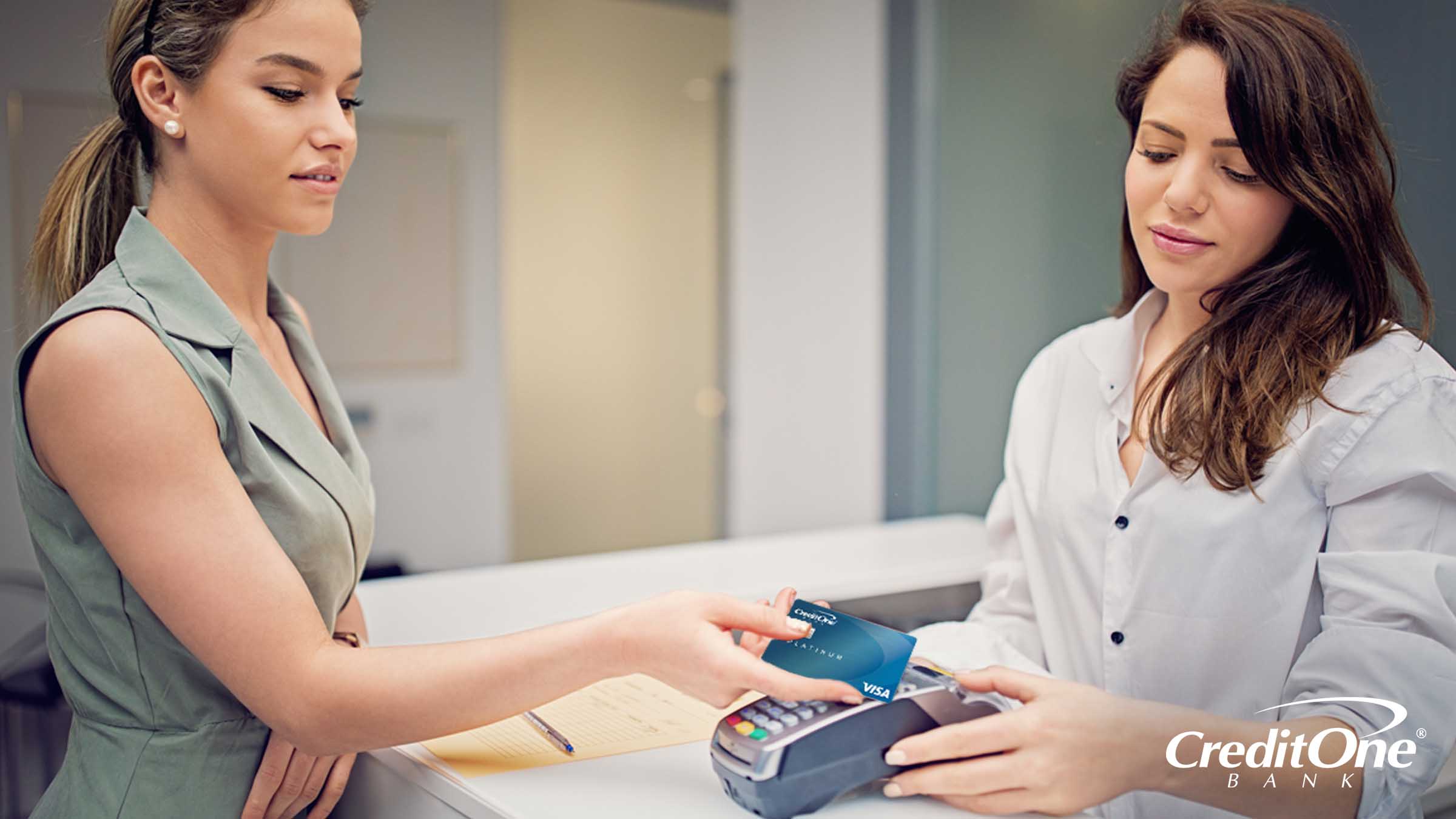Should I Pay Medical Bills with a Credit Card?
December 24, 2024
Whether it’s a routine appointment or an emergency, you should weigh the benefits and drawbacks of paying for medical bills with a credit card.

Introduction
There’s nothing more important than taking care of your health and making the right healthcare decisions. But for many people, a lot of those decisions are really about paying for healthcare expenses, including medical bills.
Questions to Ask Before Charging Medical Expenses
Paying for medical bills with a credit card may seem like a logical choice but, depending on your circumstances, it may not be your best option. There are several factors to consider before paying a medical bill with your credit card.
Is this an emergency?
If you rush yourself or someone you love to the ER or an urgent care facility, and the only way you can pay for necessary medical services is with a credit card, then you don’t have much of a choice in the matter. In this scenario, you do what you must to make yourself or your loved one well and then deal with any repercussions of paying with your credit card (see below) later.
Will my insurance cover this?
If you have health insurance, go over the bill carefully, as well as your policy, to make sure everything that should be covered is properly billed to your insurance company.
If for some reason, your insurance is not already reflected on the bill, you’ll want to verify how much your policy covers before paying that bill with your credit card.
If you have any questions, speak to your insurance company or your medical provider for clarification.
Can I pay this off in full?
Should you decide to pay a medical bill with your credit card, knowing you can afford to pay off that balance when it comes due substantially minimizes any downsides of paying with plastic. You’re essentially using your credit card as a substitute for cash or a check.
Advantages of Paying Medical Bills With a Credit Card
Sometimes using a credit card to pay for an appointment or medical expense can be beneficial.
It’s convenient
There’s no denying that paying a doctor bill or medical expense with a credit card is quick and easy. It can be done right then and there at a medical facility or, depending on who the bill is from, you may be able to pay it online, without having to write or mail a check.
If you don’t have the funds for the bill, paying with a credit card may also provide you with instant funding to cover it. However, it’s a good idea to only pay a medical bill with a credit card if you’ll have the money by the time the credit card payment is due, for reasons we’ll cover under the disadvantages section.
It may help you keep track of medical expenses
If you need to keep track of out-of-pocket medical expenses, for tax or other reasons, using a credit card is a good way to do so. Every charge you make with a credit card should appear on your statement, so tracking medical payments could just be a matter of reviewing your statements for the year.
It could earn you rewards
Using a rewards credit card to pay medical expenses may earn you cash back, airline miles, points, or more, depending on your rewards structure. Given the steep price of healthcare, paying for medical costs with the right rewards card could earn you a healthy share of rewards with only a few transactions.
Disadvantages of Paying Medical Bills With a Credit Card
In some instances, putting medical costs on your credit card can be suboptimal or even have drawbacks.
It could lessen your ability to negotiate
Say you don’t have insurance, and you put an expensive emergency room visit on your credit card. Well, for all intents and purposes, that hospital bill has been paid.
Now your debt is with the credit card company and falls under their terms, rather than with the hospital, which may be more flexible on repayment terms.
You may be charged more interest
Paying for a medical bill with a credit card — if you know you won’t be able to pay off the entire credit card balance or your credit card has no grace period — means you will pay interest, based on your credit card’s APR, on that bill. If you can’t pay the bill in full, it may be better to work something out with the medical provider, as it’s not uncommon for providers to offer low- or no-interest payment plans to their patients.
You could be paying for services covered by your insurance company
When you whip out your credit card and pay for medical services at or before the time of treatment, you are assuming that the medical provider made all of the correct insurance adjustments on your bill, but mistakes happen — it’s estimated that up to 80% of medical bills contain errors.
Or, if they haven’t made any insurance adjustments yet, you may be paying out of pocket for costs that your insurance company actually covers.
It’s a smart move to check that your coverage was accurately factored in before you consider paying with your card.
Associated negative payment information may show up in your credit reports
Most credit card companies report your payment behavior to the three major credit bureaus. So, should you pay for medical expenses with your credit card and then fall behind in making at least the minimum payment due each month, it could harm your credit. Credit card companies typically report you as past due once a payment is 30 days late.
Medical providers typically do not report your payment information to credit bureaus. So, if you’re working with a medical provider on paying off a debt and miss a payment or two, that should not show up in your credit reports. However, if the provider sends your account to a collection agency for being past due, that will likely show up in your credit reports. But that shouldn’t happen so long as you’re making consistent, on-time payments for the agreed-upon amount to the medical provider.
You may eat up much or all of your available credit
Paying a substantial medical bill with your credit card could push its outstanding balance near or to its credit limit, making it difficult to purchase other items with it.
What’s more, a large medical payment made with your credit card could drive up your credit utilization ratio, an important mathematical equation used in determining your credit score. A higher credit utilization ratio could lower your credit score. Many experts recommend keeping this ratio below 30%.
Things You Should Consider Before Charging Medical Expenses on Your Credit Card
Even knowing the advantages and disadvantages, there may still be situations where it’s hard to decide. Fortunately, a few of these options could help you make the right call.
Double-check your charges
Reviewing your bill allows you to catch errors and make sure you received all the compensation you’re entitled to from your insurance company, before putting the balance on your credit card.
This can help you avoid a situation where you’re chasing down reimbursements, saving you both time and money.
Negotiate your bill
Hospitals and medical providers may be willing to negotiate on medical bills and typically offer more flexibility on debt than credit card companies.
By working directly with a medical provider, you may be able to save on the cost of the bill and arrange more favorable payment terms. But once medical providers have been paid by the credit card company, they have no real incentive to work with you.
Apply for financial aid
There are medical financial assistance programs in place, often state-run or through non-profit organizations, which offer help for patients who are uninsured, underinsured or meet other criteria.
But paying a medical bill with a credit card could mean forfeiting financial aid opportunities and discounts offered by some providers.
Bottom Line
Medical payments are, or will almost certainly be, a part of almost everyone’s life — particularly as we grow older. The next time you have a medical bill to pay, consider all of the above pros and cons, and your financial situation, before automatically putting it on your credit card.
Jorge Labrador is a writer and editor who once realized he was having too much fun getting his budget spreadsheet right (emojis may have been involved). In his nearly two decades in journalism and advertising, he’s written about personal finance, healthcare, travel, entertainment and more, for audiences ranging from seasoned experts to absolute newcomers.



